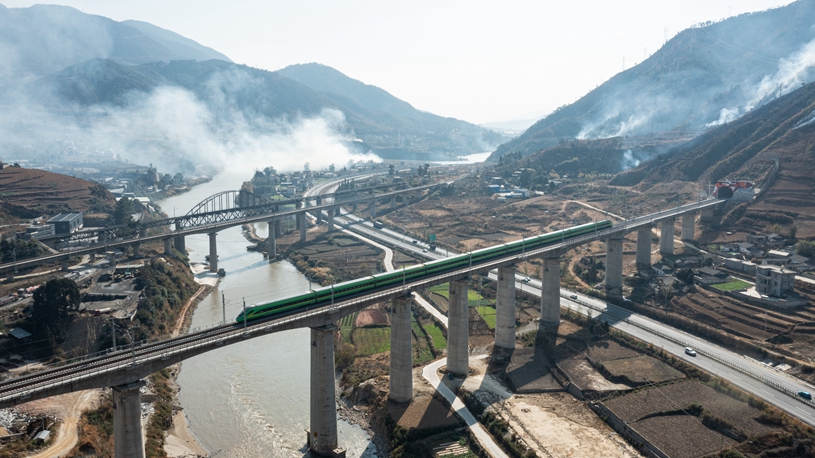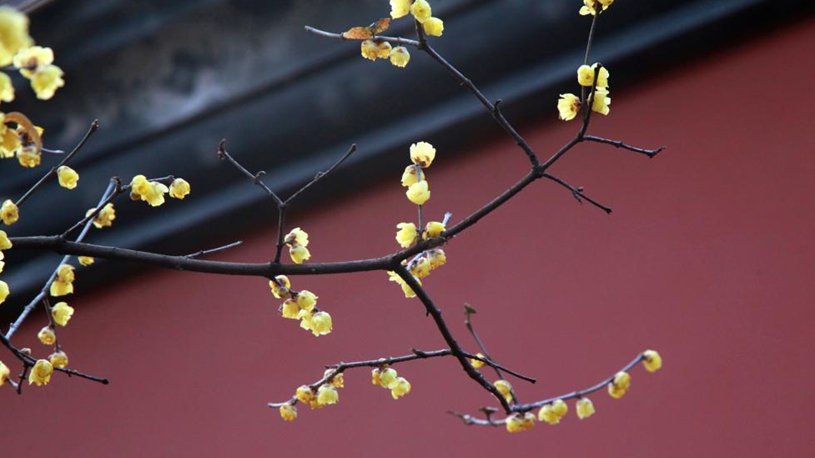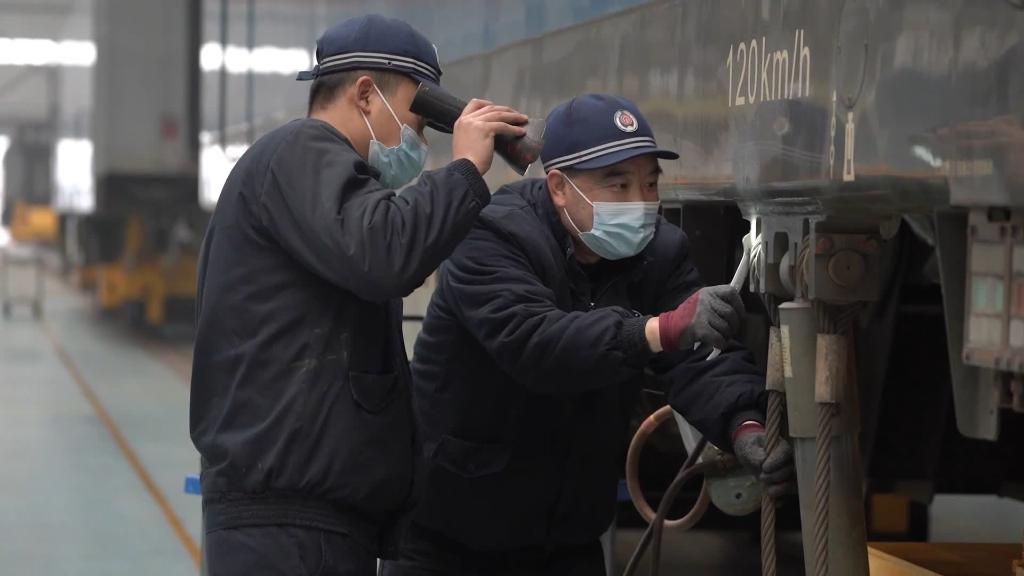ADDIS ABABA, Jan. 12 (Xinhua) -- Looking at an iconic twin tower sitting on a once derelict land full of garbage in the southern suburbs of Addis Ababa, the capital of Ethiopia, local resident Wakjira Totofa said: "It's really like a dream."
"We never thought we would see such a magnificent building in a short period," said Totofa, a civil servant who lives in the neighborhood of the building hosting the headquarters of the Africa Centers for Disease Control and Prevention (Africa CDC).
Totofa has witnessed the dramatic change from "nothing to something" on his daily commute. The first phase of the project, started in December 2020 by the China Civil Engineering Construction Corporation, was completed on Wednesday.
Gao Jiajia, project manager of the construction team, said that since the start of the project, only a few of the 330 Chinese workers on the site have taken leave. They chose to race against time even though the COVID-19 pandemic and the conflict in northern Ethiopia have brought unpredictable challenges to the construction of the project.
"I feel immensely honored that we have fulfilled China's solemn commitment," Gao said.
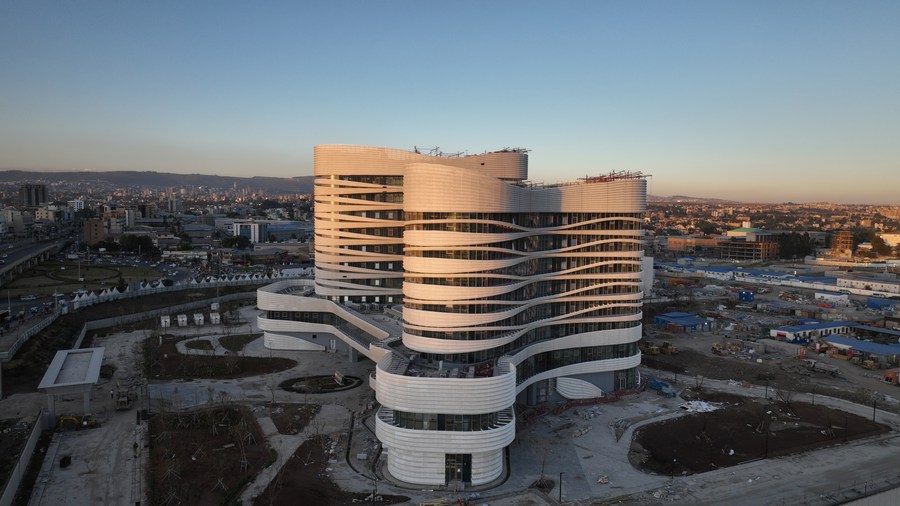
This aerial photo taken on Jan. 8, 2023 shows the headquarters building of the Africa Centers for Disease Control and Prevention (Africa CDC) in Addis Ababa, Ethiopia. (Photo by Dang Honglai/Xinhua)
UPGRADING AFRICAN PUBLIC HEALTH SYSTEM
To Ewnetu Ferede, a senior structural engineer who has worked with his Chinese peers on other major projects, the new Africa CDC headquarters has multiple positive implications.
The Africa CDC has played a vital role during the pandemic though it only had a small office. "Its capacity and size have increased exponentially, which requires a fully-fledged facility," Ferede said.
Totofa said his friends and family were thrilled when they heard the Africa CDC headquarters has been built.
"As an Ethiopian and an African, I have been afraid of diseases since I was a child, because malaria, for example, has taken the lives of some of my relatives. Every time we contracted an infectious disease, we couldn't get treatment as early as the rest of the world; when an outbreak occurred, we couldn't get a vaccine in the first place," he said.
Aschalew Worku, a health expert at Tikur Anbessa Specialized Hospital in Addis Ababa, said the ability of a resilient health system to sustain routine healthcare services during a public health emergency is an important lesson that the pandemic has taught the world.
With the highest concentration of developing countries, Africa is a weak link in the global public health system. Malaria, cholera, yellow fever, and other infectious diseases have plagued Africa all year round, seriously threatening the lives and health of the people.
So the new Africa CDC headquarters will help all the African nations share data, knowledge, human resources and laboratories, and coordinate potential response to infectious diseases, Worku said.
Benjamin Djoudalbaye, head of Policy and Health Diplomacy at the Africa CDC, believed the facility will upgrade the African healthcare agency.
"Africa is in urgent need of improving its disease control system, into which the timely completion of the Africa CDC headquarters project is expected to inject much-needed momentum," he said.
Monique Nsanzabaganwa, deputy chairperson of the African Union (AU) Commission, told Xinhua that the project will enable the Africa CDC to play its role of coordination better, as well as mobilization, and emergency management in public health. "It is a huge project; it is really commendable of China to support our agency in that manner."
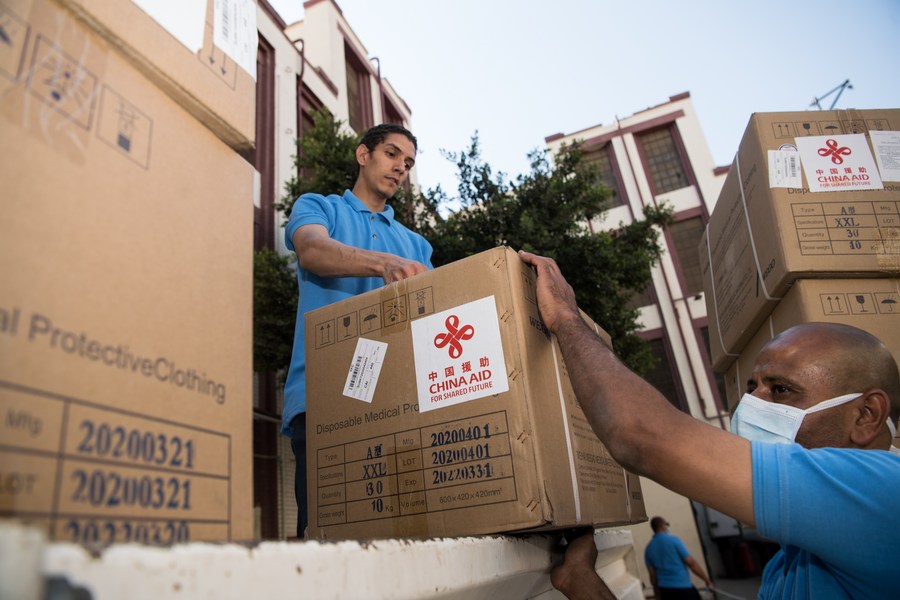
Workers transfer medical supplies from China in Cairo, Egypt, on May 10, 2020. (Xinhua/Wu Huiwo)
MORE HEALTH COOPERATION
According to several local experts, the completion of the Africa CDC can lead to more Africa-China health cooperation.
Costantinos Bt. Costantinos, a professor of public policy at the Addis Ababa University, said Africa has a long history of poor health conditions and weak medical systems, and dealing with diseases has placed a heavy burden on governments and severely constrained the continent's sustainable economic and social development in the long run.
"Fortunately, China is helping Africa improve its public health system through its aid in building the Africa CDC headquarters," he said.
China-Africa public health cooperation dates back to 1963 when China sent its first medical team to Algeria. Since then, the Chinese medical teams have been dispatched to different areas of the vast African land, fighting malaria, cholera, Ebola and other major infectious diseases together with local medical staff.
The shape of the Africa CDC twin tower is like a pair of hands, perfectly echoing the African CDC emblem that symbolizes unity, fraternity and strength, Gao told Xinhua.
Noting that the Chinese are always on the Africans' side, Teruneh Zenna, Ethiopia's former ambassador to the United Nations, said: "The project adds a rosy future to the relationship between Africa and China. I am looking forward to more cooperation between Africa and China in the field of public health." ■


